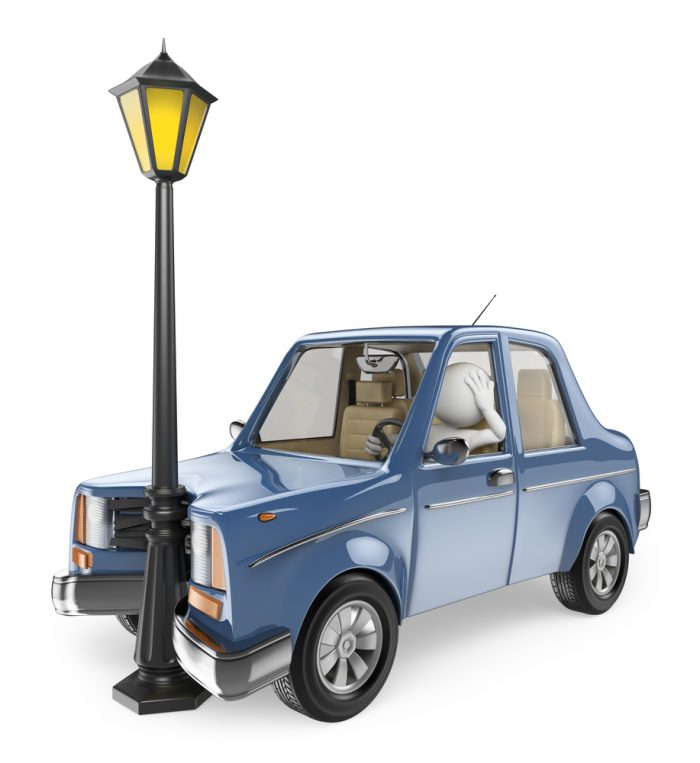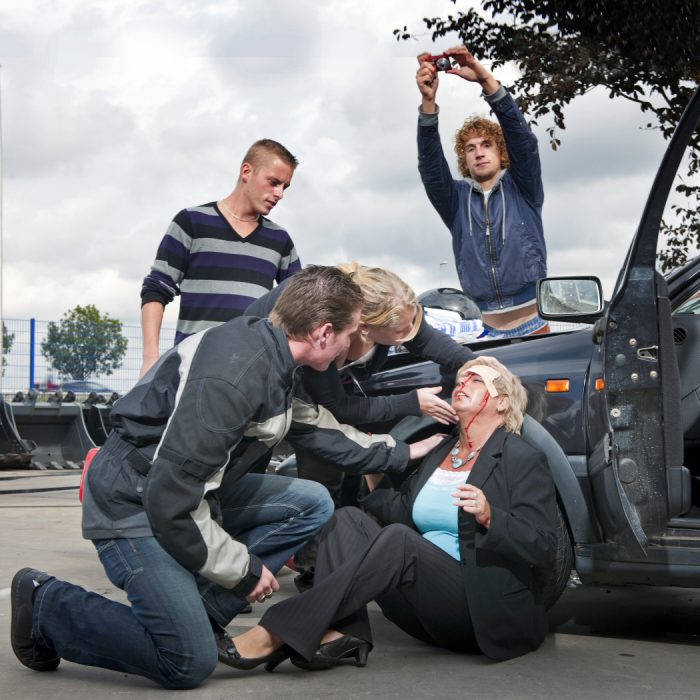What to do if you have a car accident or encounter one
Car accidents do happen — sadly, quite often — and sensible drivers can unfortunately come a cropper because of other drivers’ actions. What does the law say a driver must do if they’re involved in an accident, and what practical safety advice is out there?

Keeping on the right side of the law
To avoid a fine of up to £5,000, between 5 and 10 licence penalty points, potential disqualification and even six months behind bars, you must stop at the scene if:
- you’re involved in an accident yourself or you come across an accident that has occurred involving other people
- you injure a person or animal and/or damage someone else’s property, including road signs, walls, fences, bollards, street lamps, etc.
You’ll need to give your name, address, vehicle registration and ownership details to anyone related to the accident. If it’s simply not possible to stop, you’ll need to physically go to a police station or speak to a police constable within no more than 24 hours and report the accident and provide your car insurance certificate within seven days.
Animal-lovers may not like it, but the law says ‘animal’ means a dog, sheep, pig, goat, ass, mule, cow or horse, so drivers aren’t legally required to report hitting a cat, and many consider it normal to continue driving after injuring or killing a wild animal such as a squirrel, rabbit or pheasant.
How to stay safe and what to do with your car
Assuming you’ve not been knocked unconscious or injured to the point that you’re unable to move, you’ll need to switch your car’s hazard warning lights on if you’ve had an accident. Look for the red triangle button, which is usually found in the middle of the dashboard.
If possible, switch the engine off immediately and move yourself and any others involved to a safer place. While staying out of harm’s way, try to warn other drivers by flashing a light or positioning a warning triangle, ideally when you’re wearing something reflective. If you’ve not got any safety kit to hand, just keep yourself and others as safe as possible while you wait for the emergency services, who you should have phoned straight away.

Giving first aid to anyone who needs it
Wanting to help others is a really caring attitude but be careful not to charge in and make things worse. First, step back and work out what’s happened, identifying any hazards and risks to yourself, for whom you’re primarily responsible.
Don’t use your car as a road block and if safe, approach the person(s) gently. Visually check them for injuries but don’t move them, speak to them reassuringly and help them breathe if they are having difficulty.
Never attempt CPR if you’ve not been trained. Bleeding can be stemmed by pressing some clean material against the wound, and shock can be reduced by gently propping the person’s legs up and putting a coat or blanket over them to warm them up. It’s tempting to be a hero but it’s not a good idea to try to help someone while you’re talking to the emergency services at the same time.
The insurance angle
You don’t have to claim against your car insurance if you’ve been in an accident, but chances are you’ll want to as it’s unlikely you’ll be able to afford to pay for repairs out of your own pocket. If you have a car accident, don’t admit at the scene that you were to blame, but you do need to:
- take photos and/or videos with a mobile device, but be respectful and sensible, and stay safe
- exchange names, addresses and phone numbers with the other drivers involved, and obtain contact details from any independent witnesses who saw the accident.
- make a note or take pictures of all vehicle registration plates involved, in case any driver(s) won’t provide their details
- tell your car insurance company immediately, even if you don’t intend to claim. They will be able to advise you on any uninsured losses, what to do if the crash wasn’t your fault or an uninsured driver was involved, how to get your car repaired and what to do if it’s a write-off (which means it’s been damaged too badly and/or made too unsafe to make repairing it worthwhile)
- If you’re a Carrot customer, call us from the scene, we can help you with what to do and talk to third parties if it helps
Hopefully you’ve never been involved in a car accident and won’t be in the future, but we hope the advice we’ve shared is useful. Don’t forget to call us as soon as possible, we’re here to help!